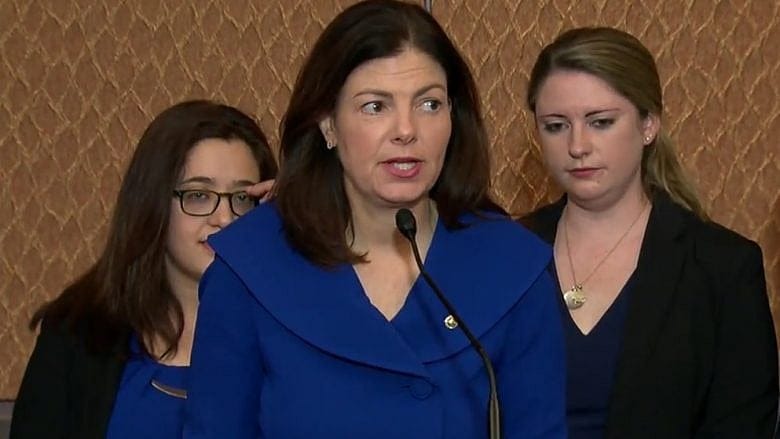Ayotte joins bid for federal campus assault bill

WASHINGTON – A bipartisan group of federal lawmakers began a push Tuesday to pass a bill that seeks to create uniform procedures for the adjudication by college bureaucrats of campus sexual assault charges.
Flanked by a group of fellow lawmakers along with several victim advocates, U.S. Sen. Kelly Ayotte (R-New Hampshire) said the proposal "focuses on making sure these crimes are properly investigated."

